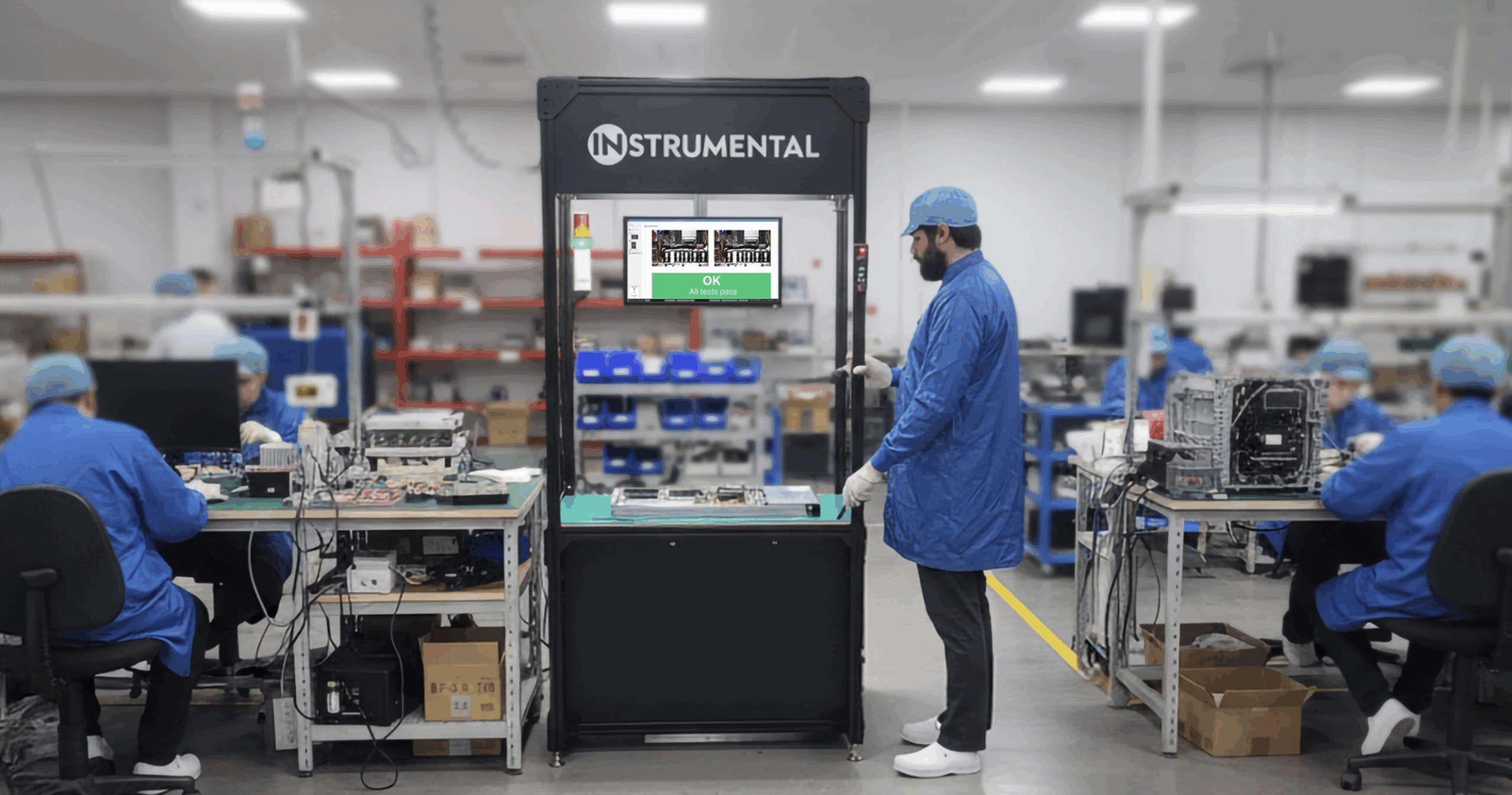Automation World, a leading media brand for supply chain professionals, profiled Instrumental this week as a case application of automation in the real-world.
In this coverage, David Greenfield was particularly interested in the implementation details of what kind of expertise is needed to get value from Instrumental. He asked CEO Anna Shedletsky if a data scientist might be required to actually implement the algorithms – and was delighted to find out that that is not the case.
The self-programmed algorithm capability is a key feature of Instrumental’s machine learning technology that removes the need for a company to employ a data scientist to apply machine learning to their production operations. “We’ve designed the software so that an engineer provides the expertise—looking at a part to determine what is defective. The engineer then visits a web app to view images and sort or filter them by key parameters or places along the line,” Shedletsky said. “Engineers tell the system where to look and the algorithms run and return a stack rank from most anomalous to least anomalous. Users of the software can then draw a threshold between what’s bad or good and give it a name; for example, shifted part, tilted switch, etc.”
You can see the full article here.
Check out the Motorola case study that Automation World covered in this article.
Related Topics



